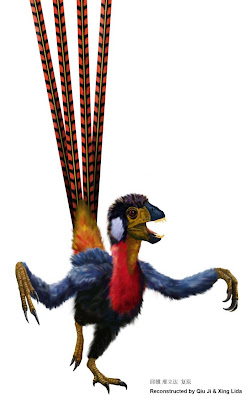When people ask what my research is, I usually tell them it’s about the intersection of brain, behaviour, and evolution. As things have unfolded in Texas (triggered by
Chris Comer's forced resignation and the kerfuffle over
the new recommended Texas science standards for K-12 teaching), I’ve been blogging a lot about the misunderstandings of evolution.
Looks like I’ll have even more to blog about.
This New Scientist article notes that some people starting to attack neuroscience on theological grounds. Although the article calls them creationists, that’s really a misnomer, since there’s no necessary link between thinking the Earth was specifically created as described in the bible and holding that mind is something immaterial and outside normal physical laws. The latter, strictly speaking, is dualism, which has a long intellectual history.
I think it’s fair to say that dualism hasn’t received the same degree of hard thumping that creationism has. Regardless of how much dualism is bandied about is philosophy departments, however, it’s certainly
not the foundation for much serious research on neuroscience.
Regardless, it is certainly noteworthy that many of the same cast of characters are interested in “non-material neuroscience” as promoting “intelligent design.” We’re going to need a new term for people who object to science because it is “materialist.”
The article concludes:
What can scientists do? They have been criticised for not doing enough to teach the public about evolution. Maybe now they need a big pre-emptive push to engage people with the science of the brain - and help the public appreciate that the brain is no place to invoke the “God of the gaps”.
The challenge I throw out is the same as the ones for evolution: What new, testable predictions does “non-materialist neuroscience” generate that could not be generated by regular neuroscience?
Or is it just, “That can’t be all there is!”?
I’m expecting a deafening silence.
 As I've mentioned before, I hate zombies. But since it's Hallowe'en, I can't resist Glen Branch's characterization of creationism as "zombie science": something that was once alive and vital, but now just won't stay down. Branch is particularly discussing the current state of affairs in Texas Board of Education.
As I've mentioned before, I hate zombies. But since it's Hallowe'en, I can't resist Glen Branch's characterization of creationism as "zombie science": something that was once alive and vital, but now just won't stay down. Branch is particularly discussing the current state of affairs in Texas Board of Education.














